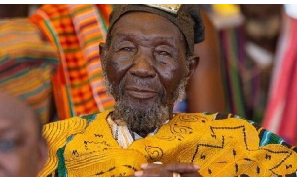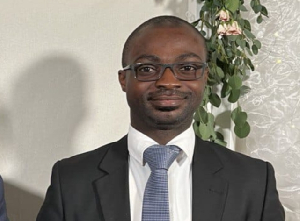BlueCrest College in Kokomlemle Accra is organising a matriculation ceremony today for 260 students.
It is no secret that private universities in Ghana are struggling to enroll new students.
Many of these institutions are relatively new; all of them established within the last 20 years.
“Ensuring that Africa’s youthful population is healthy, educated and well-equipped for the future is the best way to eradicate poverty in Africa and contribute to the world’s stability and prosperity,” wrote Hafez Ghanem, World Bank vice president for Africa on 18 October 2018 on worldbank.org.
Guided by such a philosophy, Aureos Capital, a private fund manager, for example, once expressed equity interest in a private university college in Tema with the hope of course, of getting access to some of its promising cashflow mainly from tuition fees.
Now the situation is tougher.
Rising tuition fees have resulted in many vacant classroom blocks in private universities.
Most students are opting for the public universities which are expanding their facilities and where the fees are always relatively cheaper.
So how do private universities such as BlueCrest College, which is only 10 years old, cope?
Richard Nartey, Head of Admissions says “digital marketing” is the survival tactic. But even BlueCrest which is strong in IT admits that its current total population of about 1250 students is significantly lower than its peak of about 1500 students a few years ago.
“We can operate at 1000 students for Regular, 1000 for Evening and 1000 for Weekend,” Richard Nartey told me atop a student’s eaterie.
He explained that BlueCrest College has a three-person marketing team with very strong backgrounds in “digital marketing, IT and graphic designing, and conventional marketing” who “generate the leads on all the platforms and feed the sales team with these leads.”
The fees, students complain, and Nartey admits, are relatively high by Ghanaian standards; 3500 cedis (USD700 approx) per semester for Ghanaians and USD1350 per semester for non-Ghanaians.
Thanks to digital marketing, BlueCrest College has an enviable mix of 40 percent foreign to 60 percent local students which is in fact a reversal from what the picture was a few years ago.
Richard Nartey, further surmised, “Ghanaians have acquired a taste for UK education, and in response to that recently Portsmouth, Lancaster, Lucas and Webster universities from the UK have opened local branches and are competing for students, but they offer very limited to no masters programmes so far.”
In response, BlueCrest is collaborating with University of Sunderland, UK, for the Masters in Computing and Masters in I.T Management, and an MSc. Information Technology programme is run in collaboration with University of Education Winneba (UEW).
BlueCrest College has the capacity to add more programmes under the existing three schools: School of Technology; School of Fashion and Design; and School of Business and Communication.
For now the marketing team supported by Sujith Jayaprakash, a data analytics expert, keeps sending out “Emails, SMSs and social media messages and does occasional sales pitches at offices” according to Nartey.
These digital marketing tactics are also hauling in “about 10 new applicants a day for lecturer positions,” noted Ms Delphina Adjei, Assistant Human Resources Manager as she joined in conversation. “When we advertise for students [via the mass media], the number of lecturer applicants increases to about 30 a day.”
Despite the relatively high fees for IT programmes, that department boasts of about 60 percent of the student population.
BlueCrest College’s “collaboration with IBM, Google, Oracle and Microsoft” is a factor since students benefit from free certification from the aforesaid global IT giants.
The unique selling proposition of BlueCrest College is a student corps willingly doing an average of 10 assignments per semester, far beyond the two required by National Accreditation Board; Smart classrooms, air-conditioned classrooms; a constant supply of power; the use of the Moodle teaching and learning management software that ensures original work from both faculty and students; and of course a unique multicultural environment.
Feedback; ato@writersghana.com; www.writersghana.com; LinkedIn, Isaac Ato Mensah; Instagram, @atomenswriters; Twitter, @Atomens; Facebook, Writers and Shakespeares Ghana; Telegram, Isaac Ato Mensah; Quora, Isaac Ato Mensah. WhatsApp (+233) 020 022 0353.
Writers and Shakespeares Ghana Limited exist to be a moral and intellectual guide to the best practice of PR and integrated communications around the world, beginning with Ghana.
Opinions of Sunday, 20 October 2019
Columnist: Isaac Ato Mensah















